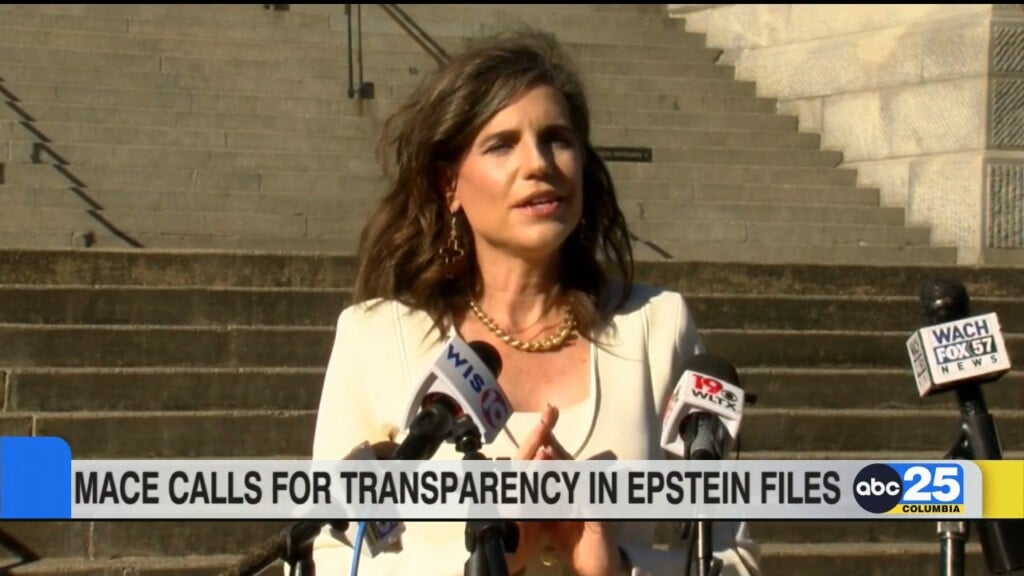Tsunami strikes Japan and Russia after an 8.8-magnitude earthquake, warnings issued for Hawaii and Alaska
A tsunami has hit coastal areas of Russia’s Kuril Islands and Japan’s large northern island of Hokkaido after a powerful, 8.8-magnitude earthquake struck off the coast of Russia early Wednesday. Warnings are also in place for California, Alaska, Hawaii and other coasts south toward New Zealand.
The Japan Meteorological Agency said a tsunami as high as 40 centimeters (1.3 feet) had been detected in 16 locations as the waves moved south along the Pacific coast from Hokkaido to just northeast of Tokyo. Officials urged caution, saying that bigger waves could come later.
Damage and evacuations were reported in the Russian regions nearest the quake’s epicenter on the Kamchatka Peninsula.
What to know:
- Hawaii under evacuation: Sirens blared in Honolulu as residents were urged to higher ground. “Urgent action should be taken to protect lives and property,” the warning stated. The first waves in Hawaii were expected around 7 p.m. local time.
- Other tsunami warnings: The National Tsunami Warning Center, based in Alaska, issued a tsunami advisory for parts of California, Oregon and Washington. A tsunami advisory has also been issued for much of the coast of Canada’s Pacific Coast province of British Columbia.
- The earthquake: The quake, which struck at 8:25 a.m. Japan time, had a preliminary magnitude of 8.0, Japan and U.S. seismologists said. The U.S. Geological Survey later updated its measurement to 8.8 magnitude. The quake was centered about 119 kilometers (74 miles) east-southeast from the Russian city of Petropavlovsk-Kamchatsky. Multiple aftershocks as strong as 6.9 magnitude were recorded.
Tsunami forecast to hit parts of Vancouver Island, British Columbia
The province’s emergency preparedness agency said waves of less than 30 centimeters (less than 1 foot) were expected to reach Tofino around 11:30 p.m. Tuesday local time. A tsunami advisory spans much of British Columbia’s coast and the agency said “multiple waves over time” were expected. The waves are expected to first reach remote Langara Island around 10:05 p.m.
The agency said local governments should consider evacuating marinas, beaches and other areas near the ocean
Tsunami warning sirens blare in Honolulu
A magnitude-8.8 earthquake in Russia’s Far East early Wednesday prompted tsunami warnings in parts of Japan, Alaska and Hawaii. (AP video by Audrey McAvoy)
Mexico’s Navy warns Pacific coast to anticipate tsunami waves
Mexico’s Navy says waves between 30 to 100 centimeters (1 to 3.3 feet) are expected on the Mexican Pacific coast after the tsunami set off by the 8.8-magnitude earthquake in Russia’s Far East.
In a report, the Navy’s tsunami warning center said the waves will begin to reach the northern coast in Ensenada, near California, at around 2:22 a.m. Wednesday central time in Mexico, and it will continue south along the Pacific coast until it reaches the Chiapas states around 7:15 a.m. local time.
The Pacific coast remains under a tsunami advisory, and the Navy recommended people stay away from the beaches until it suspends an alert.
900,000 people under evacuation advisories in Japan
Japan’s Fire an Disaster Management Agency said so far no injuries or damage have been reported.
The agency, in response to the tsunami alert, issued an evacuation advisory to more than 900,000 residents in 133 municipalities along Japan’s Pacific coast, from Hokkaido to Okinawa. The number of people who actually took shelter was not available.
A tsunami of 50 centimeters (1.6 feet) was detected at the Ishinomaki, the highest detected so far in the aftermath of Wednesday’s earthquake, according to the Japan Meteorological Agency.
The strongest quake in over a decade
The earthquake at 8:25 a.m. Japan time had a preliminary magnitude of 8.0, Japan and U.S. seismologists said. The U.S. Geological Survey later updated its measurement to 8.8 magnitude.
It appears to be the strongest anywhere in the world since the March 2011 quake off northeast Japan that was 9.0 magnitude and caused a massive tsunami that set off meltdowns at a nuclear power plant.
Only a few stronger earthquakes have ever been measured around the world.
Connections restored in Russian peninsula hit hard by the earthquake
Internet and phone connections have been restored in Kamchatka following the massive earthquake, according to the Russian news agency Tass.
Videos posted on social media showed the façade of a collapsed kindergarten in Petropavlovsk-Kamchatsky. No casualties were reported.
A port in Severo-Kurilsk, on the Kuril Islands in the Pacific, was flooded after a tsunami wave hit the area.
Russian news agencies quoting the regional Health Ministry said several people sought medical help in Kamchatka after the earthquake, but no serious injuries were reported.
Tsunami alert in Japan complicates transportation
Ferries connecting Hokkaido and Aomori on the northern tip of Japan’s Honshu island were suspended, as well as those connecting Tokyo and nearby islands.
Some local train operations have been suspended or delayed as well, according to operators.
Sendai airport says its runway has been temporarily closed.
Tsunami waves detected at multiple points on Japan’s Pacific coast
Officials urge residents to use caution as bigger waves could come later.
New Zealand warns of ‘strong and unusual currents and unpredictable surges’ along its coastlines
New Zealand authorities issued warnings of “strong and unusual currents and unpredictable surges” along coastlines throughout the country.
The alert by the government emergency management agency said people should move out of the water, off beaches and shore areas, and away from harbors, marinas, rivers and estuaries.
Japanese nuclear power plants stop work
Japanese nuclear power plants along the Pacific coasts have suspended their work schedule in response to the tsunami alert, but so far no abnormalities have been reported.
Tokyo Electric Power Company Holdings, which operates the tsunami-hit Fukushima Daiichi nuclear power plant, said about 4,000 workers are taking shelter at higher grounds on the plant complex while monitoring remotely to ensure plant safety.
Its release of treated radioactive wastewater into the sea is also temporarily suspended as a cautionary step.
Russian scientists call the earthquake a ‘unique event’
The 8.8-magnitude earthquake was the strongest to hit that area in Kamchatka since 1952, according to the local branch of the Geophysical Survey of the Russian Academy of Sciences.
In a statement posted on their Telegram channel, they called the earthquake a “unique event.” They said the epicenter was near a recent earthquake that struck the peninsula on July 20.
While the situation “was under control,” they said there are risks of aftershocks, which could last for up to a month, and warned against visiting certain coastal areas.
Oregon officials say small tsunami expected to reach the state’s coastline
The Oregon Department of Emergency Management said on Facebook that small tsunami waves were expected to reach parts of the state’s coastline starting around 11:40 p.m. local time, with wave heights between 1 to 2 feet (30 to 60 centimeters).
It urged people to stay away from beaches, harbors and marinas and to remain in a safe location away from the coast until the advisory is lifted.
“This is not a major tsunami, but dangerous currents and strong waves may pose a risk to those near the water,” the department said.
Correction: This item has been updated to show wave heights are expected to reach between 1 and 2 feet, not 1 and 3 feet.
First waves hit Hokkaido in Japan and Russia’s Kuril Islands
The Japan Meteorological Agency said a first tsunami wave of about 30 centimeters (about 1 foot) reached Nemuro on the eastern coast of Hokkaido.
The first tsunami wave hit the coastal area of Severo-Kurilsk, the main settlement on Russia’s Kuril Islands in the Pacific, according to the local governor Valery Limarenko.
He said residents were safe and staying on high ground until the threat of a repeat wave was gone.
The Philippines warns residents of possible tsunami waves
Philippine authorities warned provinces and towns along the archipelago’s eastern coast facing the Pacific of possible tsunami waves of less than 1 meter (3 feet) that could hit between 1:20 p.m. to 2:40 p.m. (local time) and advised people to stay away from the beach and coastal areas.
“It may not be the largest of waves, but these can continue for hours and expose people swimming in the waters to danger,” Teresito Bacolcol of the Philippine Institute of Volcanology and Seismology told The Associated Press.






